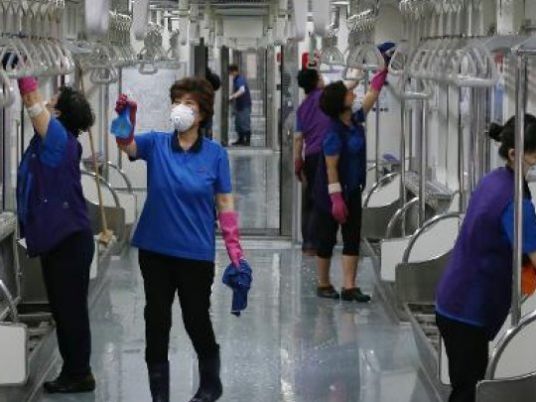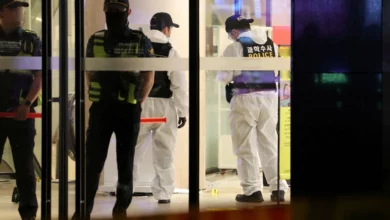
The World Health Organization said on Saturday South Korea's outbreak of Middle East Respiratory Syndrome (MERS) was "large and complex" and more cases should be anticipated, but it saw no sign the disease is spreading in the community.
There was also no indication that the MERS virus in South Korea had changed to make it more transmissible, the WHO's assistant director general, Keiji Fukuda, told a news conference at the Health Ministry in Sejong, south of the capital, Seoul.
The virus has infected 138 people in South Korea and killed 14 of them since it was first diagnosed on May 20 in a businessman who had returned from a trip to the Middle East.
The outbreak is the largest outside Saudi Arabia, where the disease was first identified in humans in 2012, and has stirred fears in Asia of a repeat of a 2002-2003 scare when Severe Acute Respiratory Syndrome (SARS) killed about 800 people worldwide.
"Because the outbreak has been large and is complex, more cases should be anticipated," said Fukuda, who is leading a WHO team that is conducted a joint review with South Korean officials of the country's response to the outbreak.
He said he was encouraged that South Korea's control measures were having an impact.
The businessman who brought MERS back to South Korea visited several health centers for a cough and fever before he was diagnosed, leaving a trail of infection in his wake.
All of South Korea's cases have been linked to health facilities.
Fukuda cited crowded emergency units and wards, together with the custom of friends and family visiting patients as aggravating a less than optimal initial response to an unfamiliar infection.
A tendency for sick people to visit more than one health facility, as the business man did, was also likely to have been a factor, he said.
"The practice of seeking care at many different medical facilities, so-called ‘doctor shopping’, may have been a contributing factor," he said.
But the spread was confined to hospitals.
"At present, the mission has found no evidence to indicate there is an ongoing transmission in the community," Fukuda said.
Authorities have sealed off at least two hospitals and about 4,000 people are in quarantine, either at home or in medical facilities. Quarantine has been widened to isolate anyone who may have come into contact with a MERS patient.
The 12 new cases reported on Saturday included an ambulance driver who transported an infected person.
On the previous day, only four new cases were reported, the fewest in 11 days, raising hope the worst might be over.
But experts predicted more cases until the incubation period, which is believed to be up to two weeks, for everyone exposed to an infected person is over.
A 67-year-old woman who contracted the virus from a patient became the 14th person to die in the outbreak, the ministry said. All of those who have died have been elderly or people suffering from existing ailments.
MERS is caused by a coronavirus from the same family as the one that caused SARS. It is more deadly than SARS but does not spread as easily, at least for now. There is no cure or vaccine.




